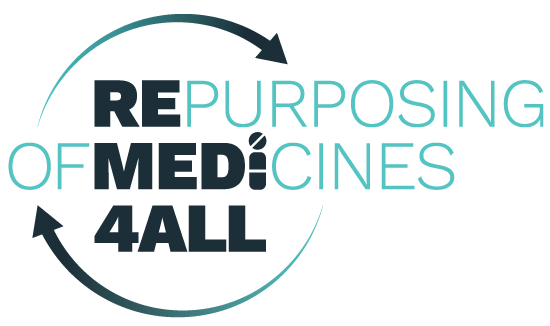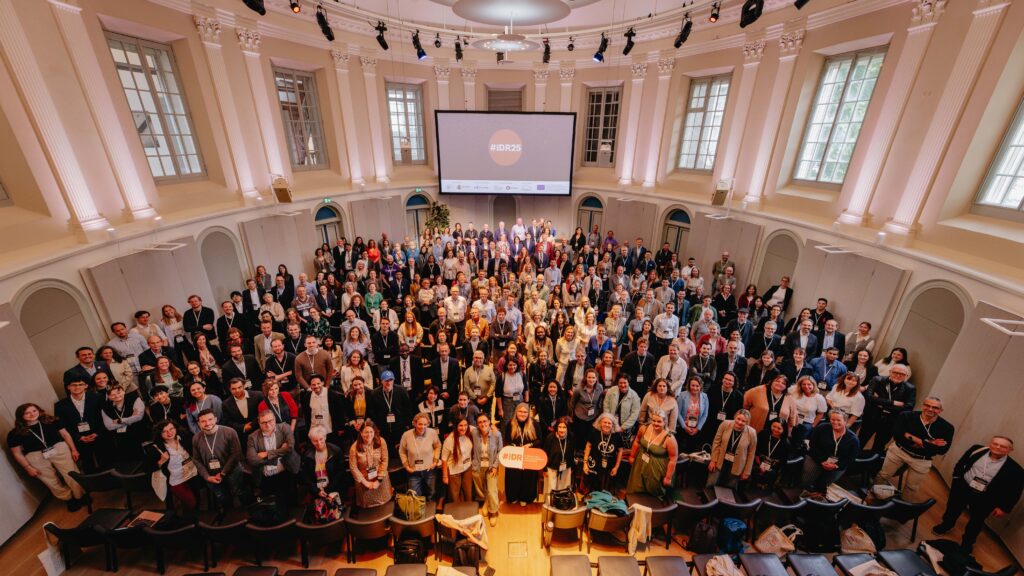
Over 300 attendees take part in the 2025 International Drug Repurposing (iDR) Conference focused in this second edition on AI, innovative clinical trials, repurposing for the underserved and patient access.
Amsterdam, The Netherlands – May 8, 2025 – The 2025 International Drug Repurposing Conference has successfully concluded after two days of insightful talks and discussions in the heart of Amsterdam. The event, organised by the EU-funded consortium, REMEDi4ALL and the UK-based charity, Beacon for Rare Diseases has attracted over 300 participants, featuring over 60 experts in drug repurposing research, funding, regulatory or patient advocacy. The Conference blended plenary session with four tracks focusing on AI, repurposing for the under-served, pathways to patient access and innovative clinical trial designs.
The first day of the 2025 International Drug Repurposing Conference kicked off with an overview of the current drug repurposing landscape, setting the stage for in-depth discussion. Speaking at the opening session, Anton Ussi, CEO at EATRIS and REMEDi4ALL coordinator, highlighted the prevalence and relevance of drug repurposing, reminding participants that only a third of all drugs approved over the last 20 years are completely new. “Drug repurposing has experienced massive recent progress with the inclusion of Real-World Evidence, advances on basic research studies and screening and the eclosion of AI and big data approaches” he said. Before 300 attendees representing all key interest groups, Ussi stressed the need to bring together all experts involved in the different stages of the drug repurposing pathway -from early discovery and clinical research to funding, regulatory compliance, market access and reimbursement- to make the process more efficient, while systematically placing the patient at the center.
Heleen Van der Meer (ZonMw) reinforced this idea by describing drug repurposing as a team sport involving diverse expertise. She also referred to the important work being done by REMEDi4ALL’s Funders Network to overcome one of the critical challenges hindering the potential of drug repurposing. “Beyond sharing best practices and facilitating collaboration, this network is co-creating innovative funding streams and exploring viable business models to overcome current fragmentation and barriers” said Van der Meer, a leading voice in REMEDi4ALL.
Throughout all sessions, the involvement of patients was significantly emphasised, underlining their essential role in research. Patient advocate, Kim McClellan offered a moving account of her experience with Bevacizumab for recurrent respiratory papillomatosis. As leader of The Recurrent Respiratory Papillomatosis Foundation, McClellan referred to the trauma of having undergone over 250 surgical interventions before being prescribed off label the repurposed drug in 2017. “I’m here to share how a rare, life-altering disease changed my world — and how one off-label treatment gave me my voice and life back. I am why drug repurposing matters” she said.
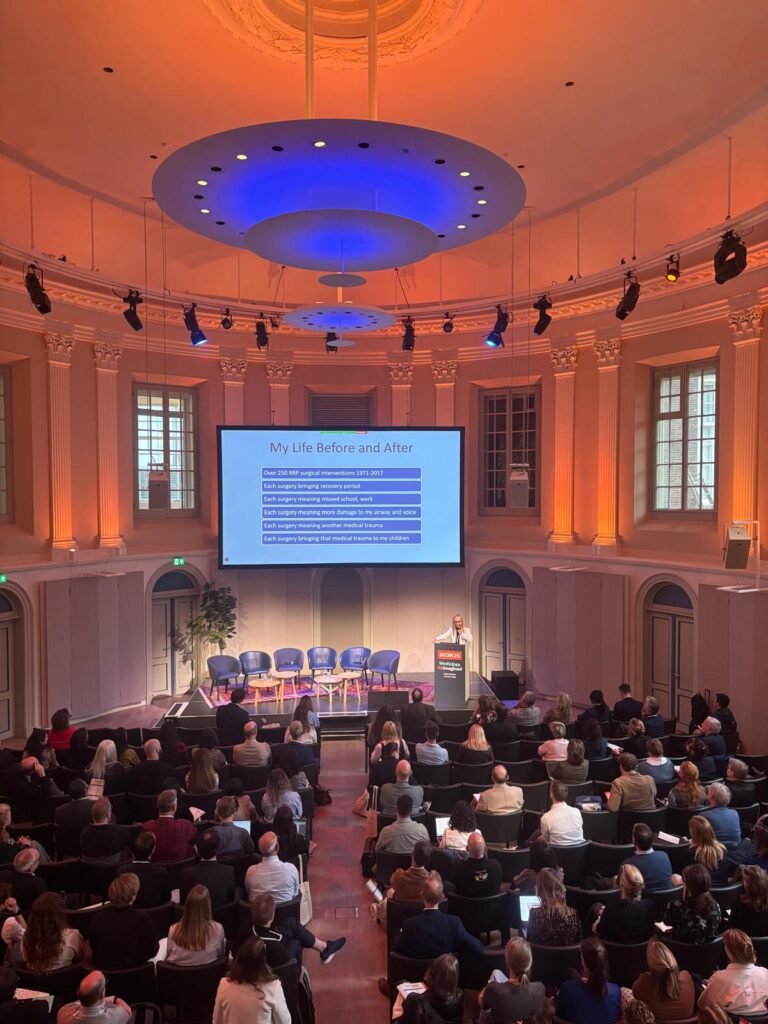
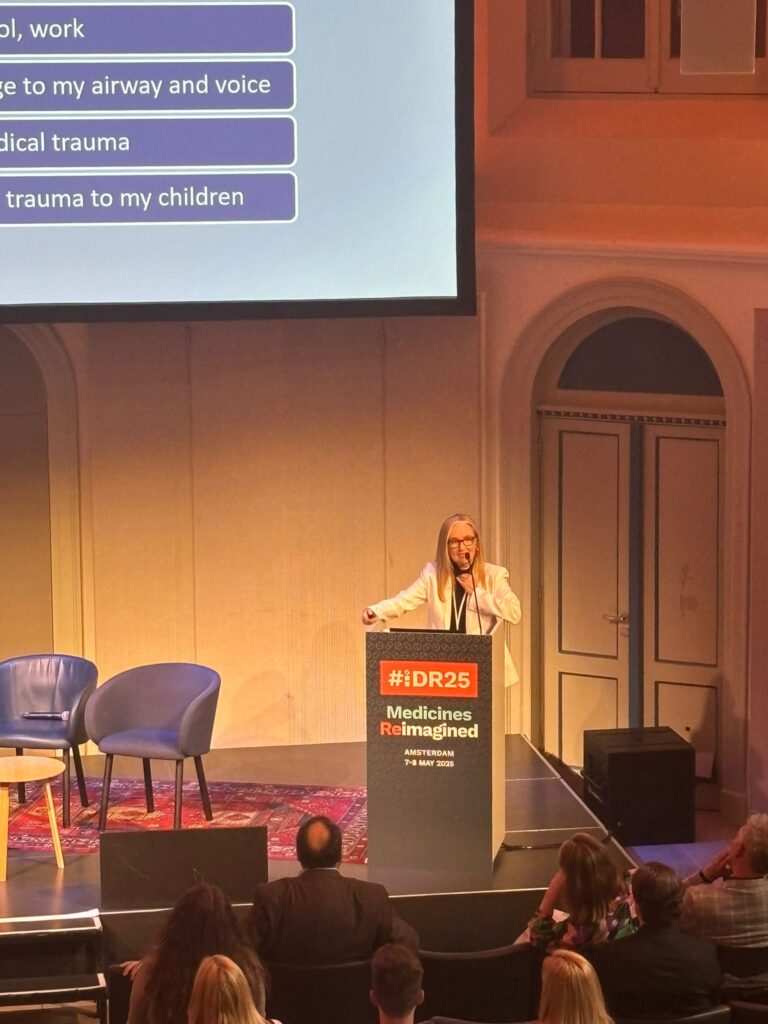
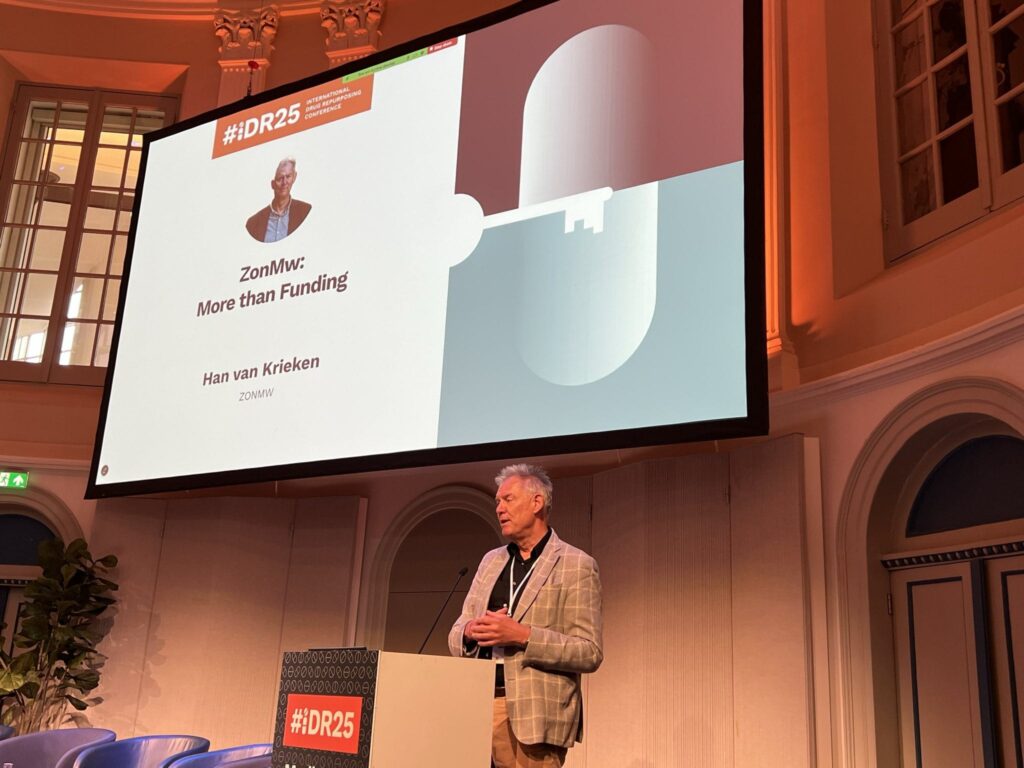
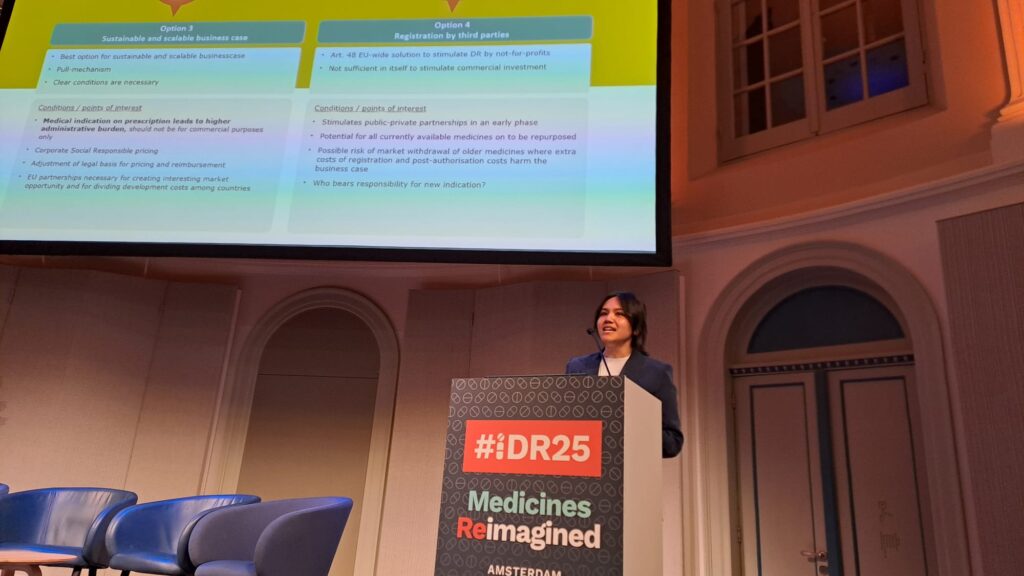
César Hernández (Spanish Ministry of Health) highlighted the strategic initiatives being undertaken by the Spanish government to support drug repurposing efforts. “Drug repurposing has the potential to accelerate access to new, effective treatments. A stronger alliance between academia and industry can significantly reduce the costs and time of drug development to address unmet medical needs” he said.
Yorick Peterse and Therésa Dao from the Dutch Ministry of Health focused on repurposing of generic drugs role to bring faster and affordable medicines to patients. “We already know the safety profile of these drugs which means that less studies and investment is needed” explained Peterse. Moreover, Yorick Peterse called for international collaboration across several EU countries to generate attractive market opportunities and rationalise costs.
Four parallel tracks focused on AI, patient access, repurposing for underserved populations and innovative clinical trials
The Conference featured four tracks focused on latest advances in key thematic areas. One of the tracks showcased the potential of AI for drug repurposing where it is proving crucial to identify repurposing opportunities and support clinical decisions. Ethical challenges and regulatory aspects were also discussed.
A second track highlighted the transformative potential of drug repurposing for underserved populations, including those with rare genetic diseases, rare cancers, paediatric patients, and individuals with rare infectious conditions. Patient advocates and researchers shared compelling case studies that showcased the significant benefits of repurposing existing drugs for these communities.
In parallel, discussions on pathways to patient access emphasised the importance of transitioning from research results to actual patient access to repurposed medicines. Speakers explored real-life examples and initiatives that facilitate this transition. The sessions also covered the economic sustainability of drug repurposing, with valuable insights on IP strategies, business models, and innovative financing mechanisms.
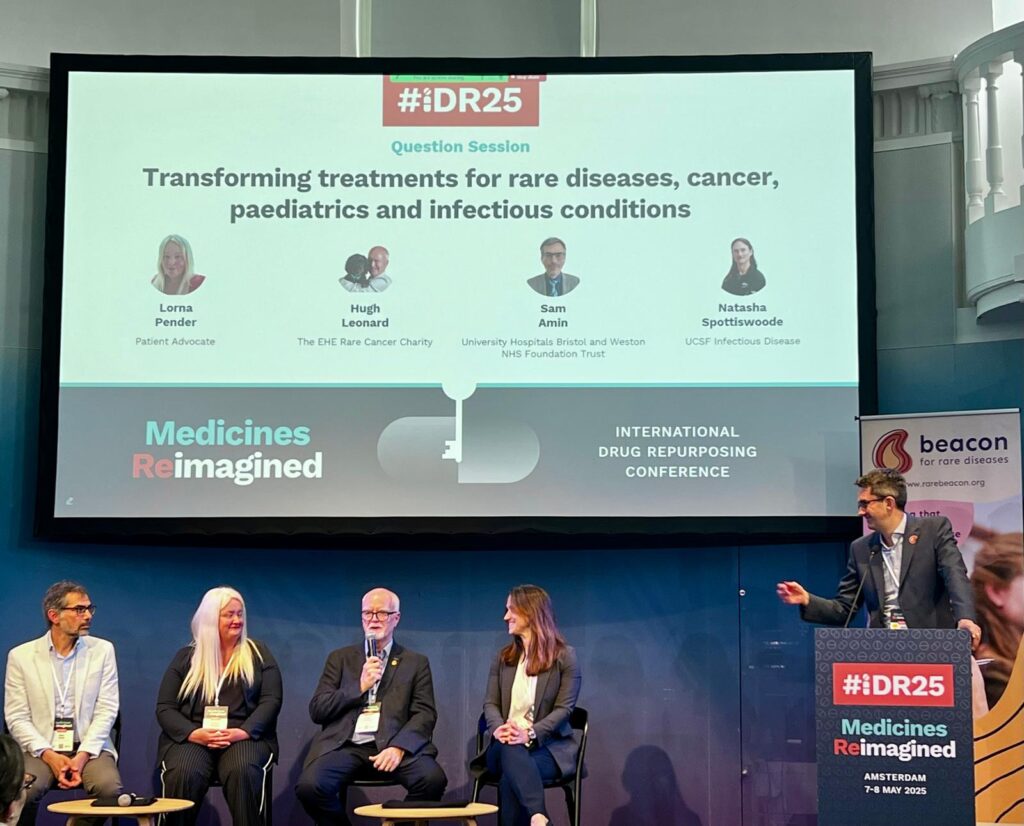
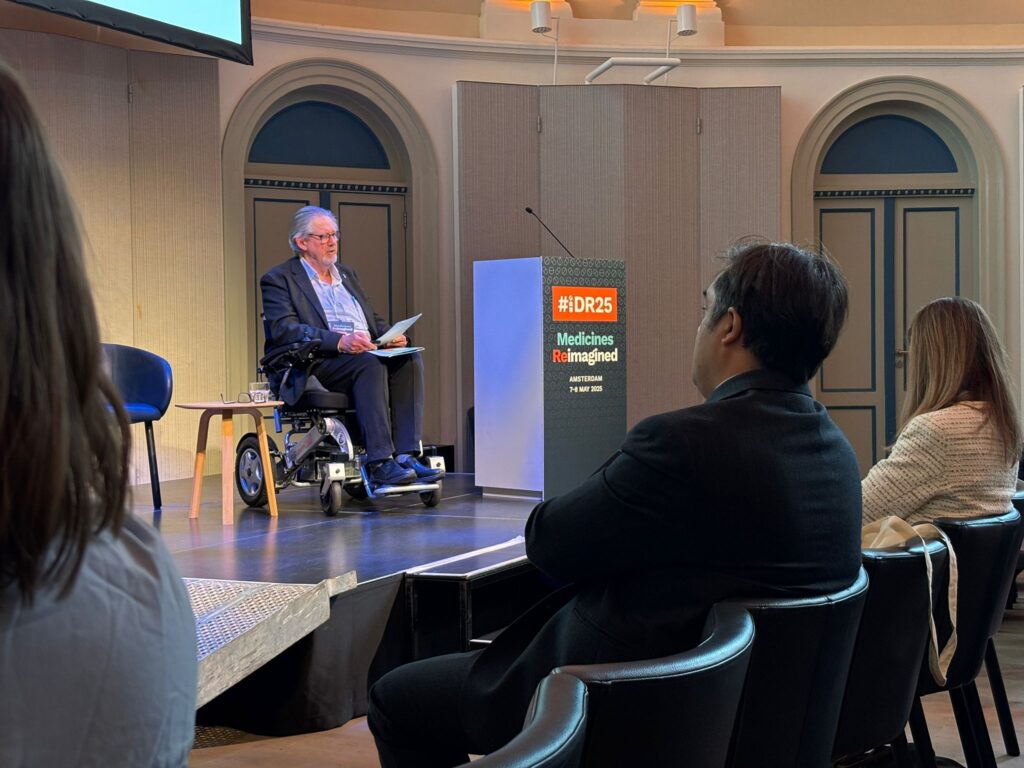
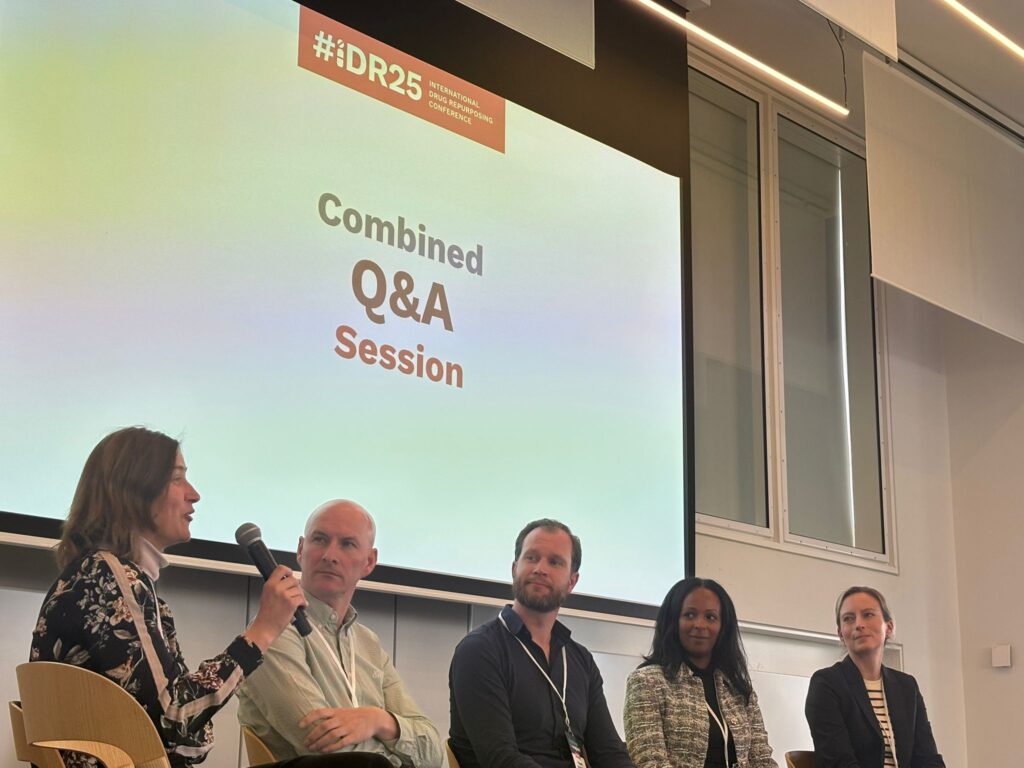
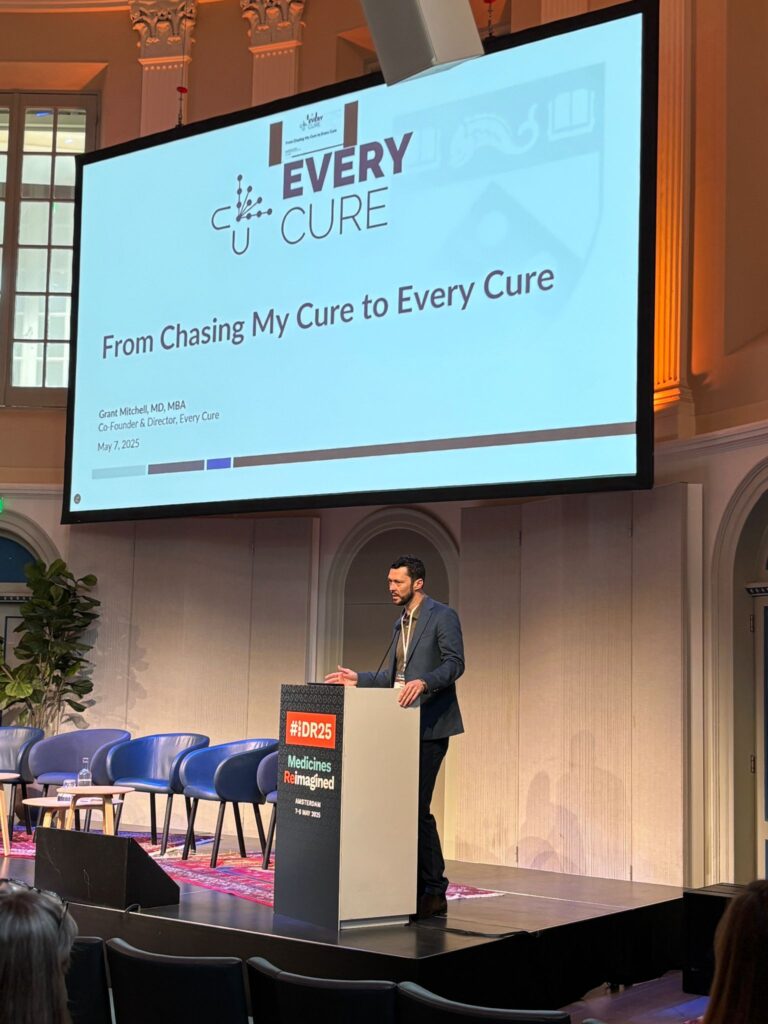
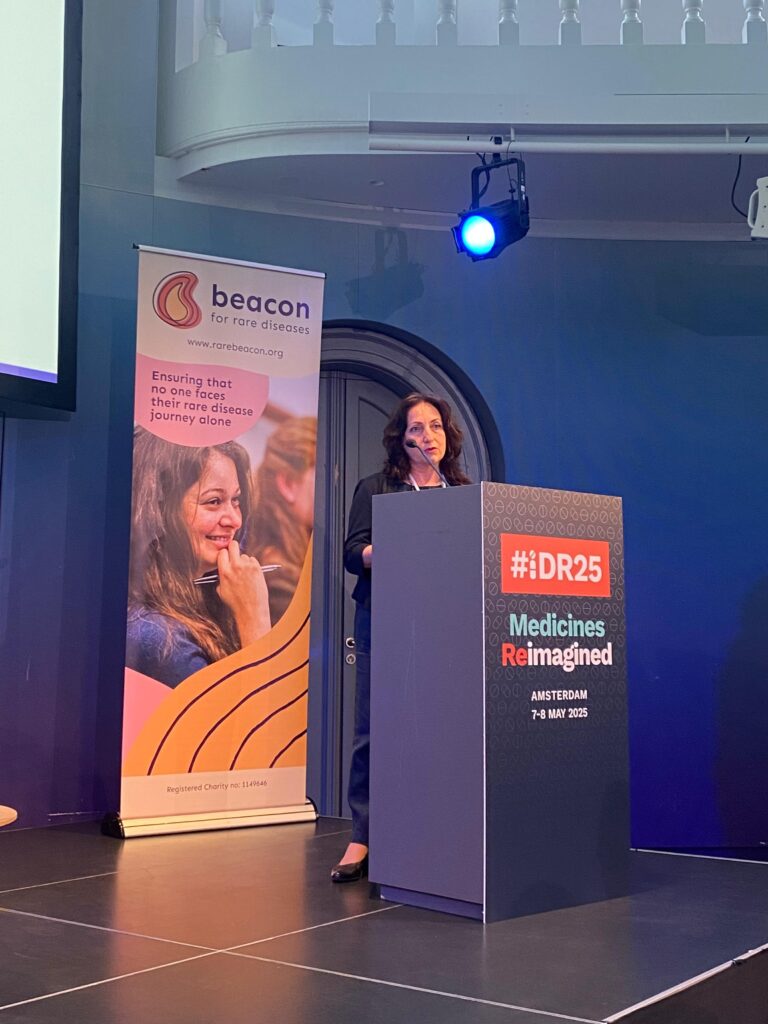
The innovative trials track explored the practical application of novel trial designs. The sessions featured case study examples of these novel designs in practice and discussed why and how these approaches can support trials in populations that are historically hard to conduct research in – such as rare disease.
Poster session to feature latest research
The poster session provided an opportunity for researchers to showcase their latest findings and innovative approaches in drug repurposing. This interactive session allowed for networking and collaboration, fostering a dynamic exchange of ideas and potential partnerships. Moreover, posters were evaluated by expert judges with Arsenii Zabirnyk from Oslo University Hospital, winning the poster competition for his work on: “Development of pharmacological treatment against aortic valve calcification”.
Patients representatives and REMEDi4ALL take the stage at the closing plenaries
The conference featured two plenary sessions on the second day. The first, titled “Nothing About Us Without Us: The Necessity of Patient Voices in Drug Repurposing,” emphasised the critical role of patient advocacy in the drug repurposing process. In the final plenary session, “Shaping the Future of Drug Repurposing Together,” REMEDi4ALL scientific programme manager, Alicia Soler Cantón, explained how the REMEDi4ALL Concierge has achieved remarkable success by engaging with 190 requesters with different repurposing projects from around the globe, spanning 18 EU countries as well as the United States, Canada, India, Australia, Singapore, Algeria, Israel, Hong Kong, and South Korea. This initiative is now naturally evolving into a portal for triaging and supporting additional repurposing projects with existing resources. “The Concierge has shown that there is no shortage of innovative drug repurposing ideas,” said Soler Cantón.
During her presentation, Soler shared future REMEDi4ALL plans to further its impact by establishing The REMEDi4ALL Foundation, a non-profit entity dedicated to supporting the core operations and advancing promising repurposing projects from hypothesis development through preclinical and clinical stages to approval and reimbursement. With a growing network of funders and investors, REMEDi4ALL is poised to foster a marketplace where thoroughly vetted projects can be pitched to secure necessary backing, ensuring the continuation and expansion of their transformative work.
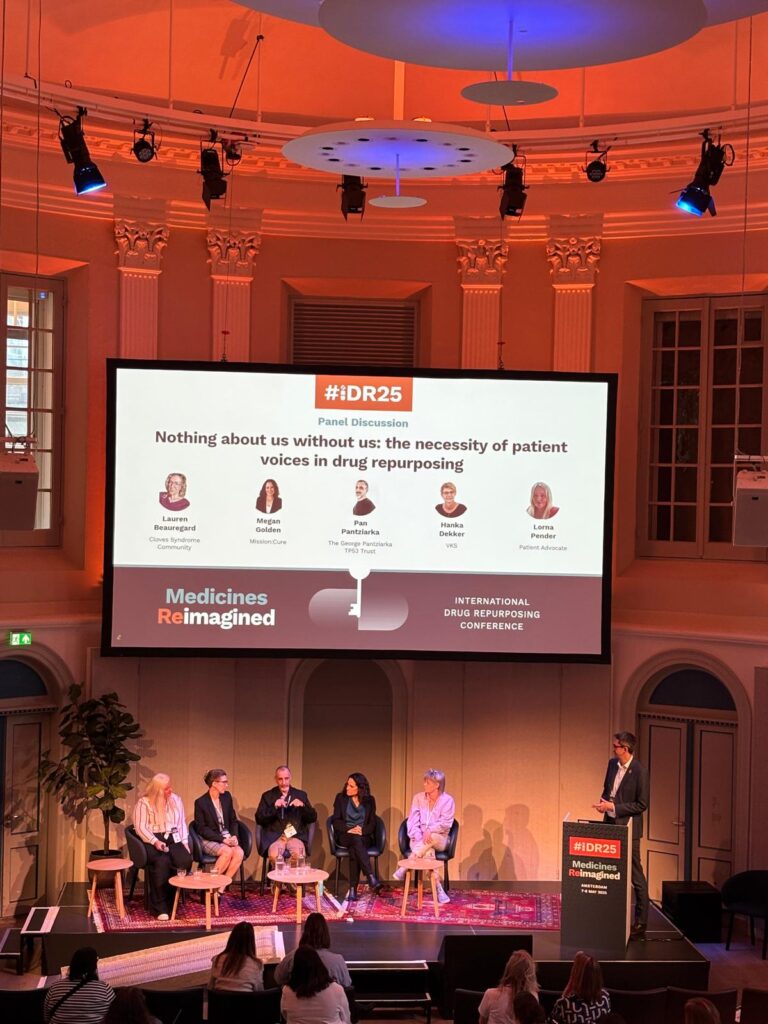
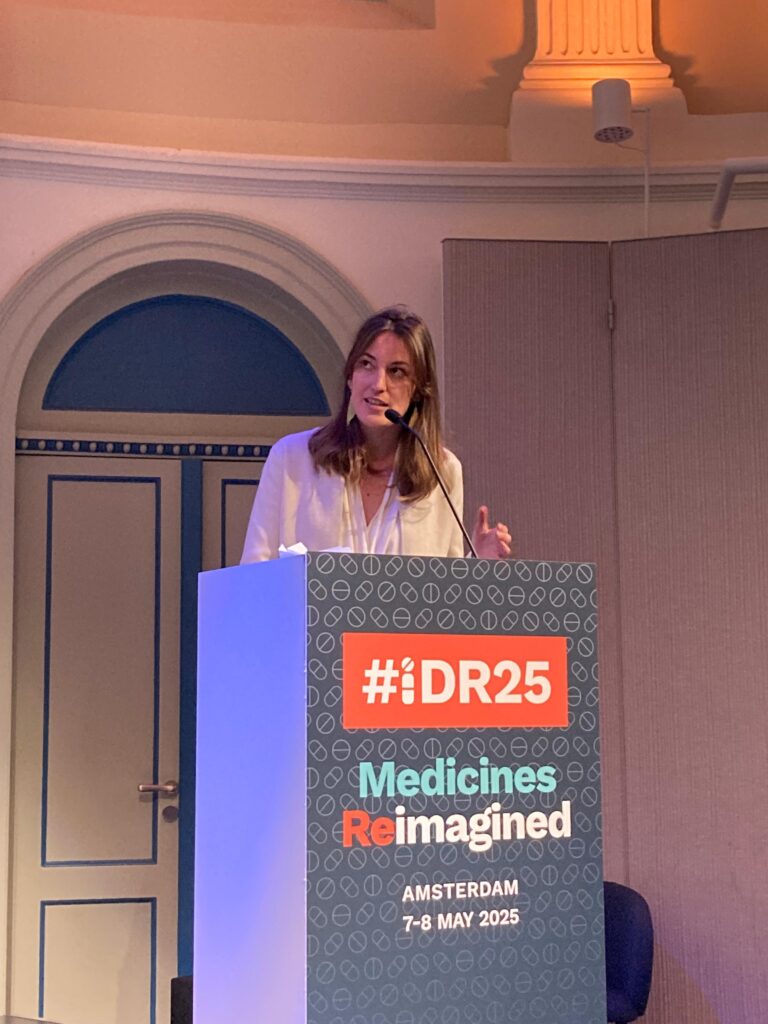
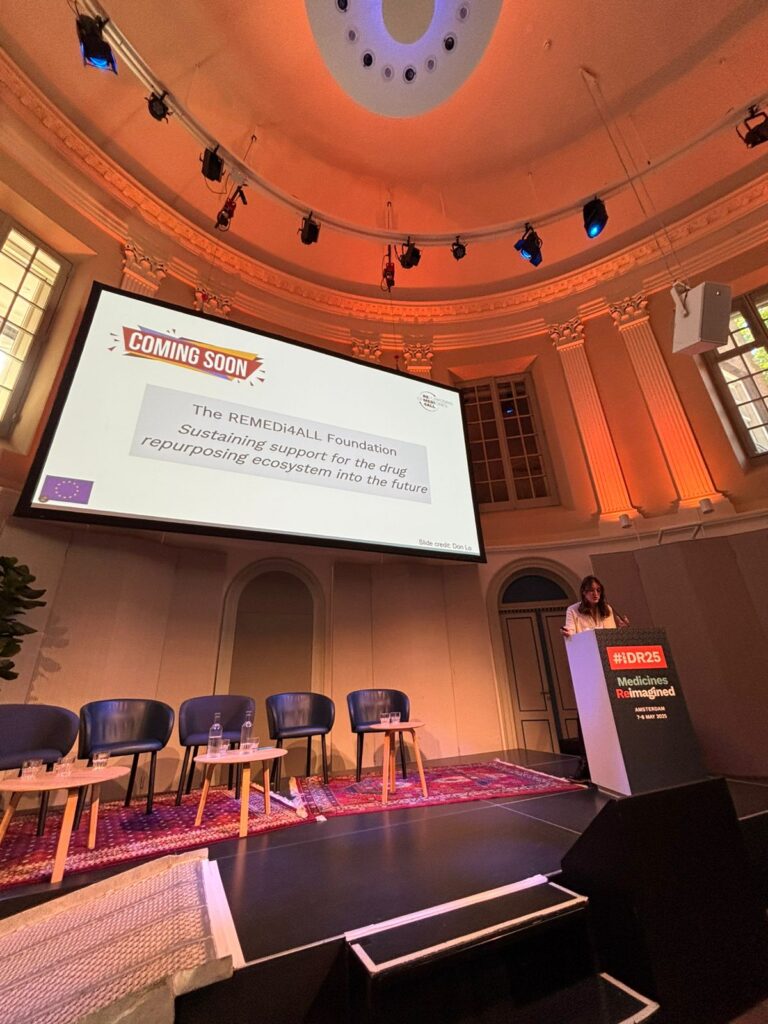
In his closing speech, Rick Thompson, CEO at Beacon for Rare Diseases, emphasised the need for coordinated efforts from policy-makers to support and incentivise drug repurposing, calling on all stakeholders to recognise the value of this strategy. Additionally, he requested that ideas and recommendations be tested to develop innovative models for bringing repurposed drugs to market and creating more coordinated funding pipelines to prevent projects from stalling. Thompson ended with a compelling reminder: “The voices of patients are essential in driving meaningful change in drug repurposing efforts. Let’s make sure we stay true to this premise”.
The 2025 International Drug Repurposing Conference has successfully highlighted the transformative potential of drug repurposing, fostering collaboration and innovation across sectors and borders. REMEDi4ALL remains committed to advancing the field and improving patient outcomes through repurposed medicines.
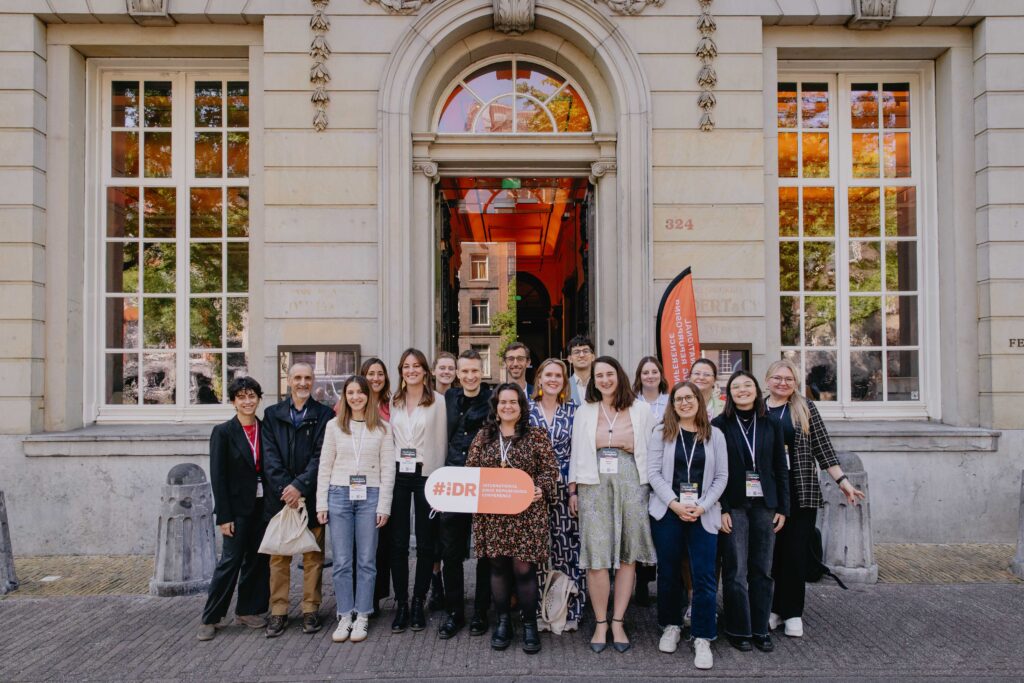
For more information, please visit the iDR conference hub.
